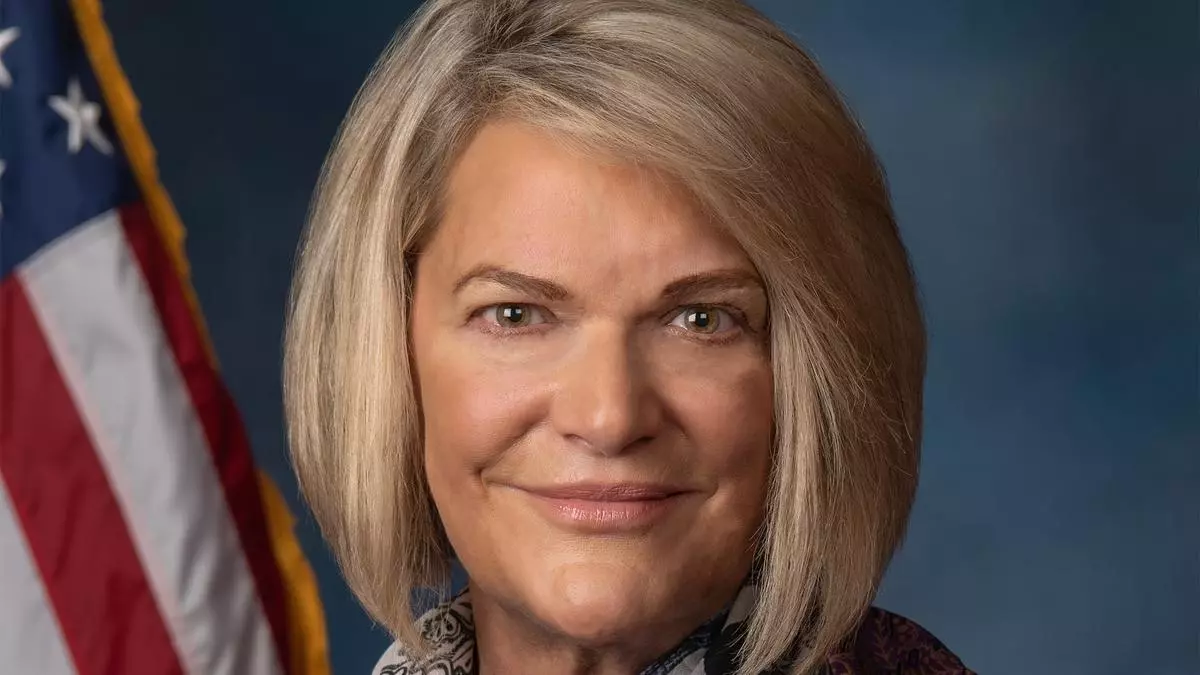Trump’s ally Lummis pushes to sell some of the Federal Reserve’s gold to buy Bitcoin
An ally of Donald Trump in the US Senate has a plan for filling up the president-elect’s proposed strategic Bitcoin stockpile without adding to the government deficit: Sell off some of the Federal Reserve’s gold.
Republican Senator Cynthia Lummis of Wyoming plans to push forward with a bill to do exactly that when the new Congress is seated next year. The bill calls for the US to acquire 1 million Bitcoin, representing nearly 5 per cent of the outstanding tokens. The purchases would cost about $90 billion at current market prices, though the sum would likely increase if the bill passes and investors front-run the government’s buying.
“We already have the financial assets in the form of gold certificates to convert to Bitcoin,” Lummis said in an interview with Bloomberg. “So the effect on the US balance sheet is pretty neutral.”
Lummis’ bill would greatly expand the scope of what Trump so far has indicated is his plan for a strategic Bitcoin reserve, which is for the government to maintain ownership of the roughly 200,000 tokens that the US already possesses following asset seizures. According to Lummis’ bill, the cryptocurrency would be held for a minimum of 20 years, and the presumed appreciation in value would help to reduce the national debt.
Yet despite the arrival of a Bitcoin believer in the White House and what the industry hopes will be the most crypto-friendly Congress ever, some market watchers believe Lummis’ bill, which currently has no co-sponsors, faces an uphill battle. Pricing on the cryptocurrency-based predictions platform Polymarket currently implies a 31 per cent probability that Trump will create a Bitcoin reserve.
“It’s still putting government money on the line, and Bitcoin has not shown itself to be a particularly stable asset,” said Jennifer J Schulp, director of financial regulation studies at the Cato Institute’s Center for Monetary and Financial Alternatives. “The bill asks senators and members of Congress, who may not understand crypto that well, to make a much bigger leap of faith in terms of its long-term viability.”
Michael Novogratz, the billionaire head of crypto investment firm Galaxy Digital, told Bloomberg Television that he believes there is a low likelihood that the US will set up a Bitcoin strategic reserve. If the US does create such a stockpile, Novogratz predicted that it would push the price of the largest digital token to $500,000 since other nations would feel compelled to create similar stockpiles.
In theory, at least, the Fed has more than enough gold to buy 1 million Bitcoin and still have a lot of the precious metal left over. The Fed’s balance sheet lists holdings of certificates representing gold held by the Treasury that are valued at about $11 billion. However, that value is based on a so-called statutory price that has been held constant at $42.2222 per ounce since 1973. Marked to market at current spot prices, the stash is worth about $675 billion, though liquidation of large amounts of government gold poses the risk of lowering the market price.
Lummis first unveiled her bill at the Bitcoin 2024 conference in Nashville in July, right after Trump addressed the gathering and announced his ambition to create a government Bitcoin reserve. In his description, the reserve would be based on the tokens already held by the government; he didn’t mention buying 1 million Bitcoin to add to it, though his ally Robert F Kennedy Jr said at the same conference that he understood that to be the plan.
Since Trump’s victory in the presidential election last week, the crypto market has surged. Bitcoin’s record-breaking rally took the digital asset above $93,000 on Wednesday, and the overall value of the crypto market is back above its pandemic-era peak.
Lummis is optimistic that her bill — called the BITCOIN Act, short for Boosting Innovation, Technology, and Competitiveness through Optimized Investment Nationwide — will gain support in the next Congress. For one thing, she says, Trump has already endorsed the idea of a reserve and his closest advisers include people “who understand Bitcoin and its role in our future.”
And the new GOP Senate majority includes crypto-friendly lawmakers such as Republican Bernie Moreno, who unseated the incumbent Democrat Sherrod Brown in Ohio’s Senate race. Pro-crypto super-PAC Fairshake spent some $40 million to defeat Brown, an ally of Securities and Exchange Commission Chair Gary Gensler, who led the agency in a crackdown on the crypto sector over the past few years. The crypto industry spent a total of about $135 million in the 2024 election cycle to back more than 50 favored candidates, including Democrats and Republicans.
“New members are coming in, including Bernie Moreno from Ohio and Tim Sheehy from Montana, who understand digital assets,” Lummis said. “The cavalry is arriving in Washington.”
